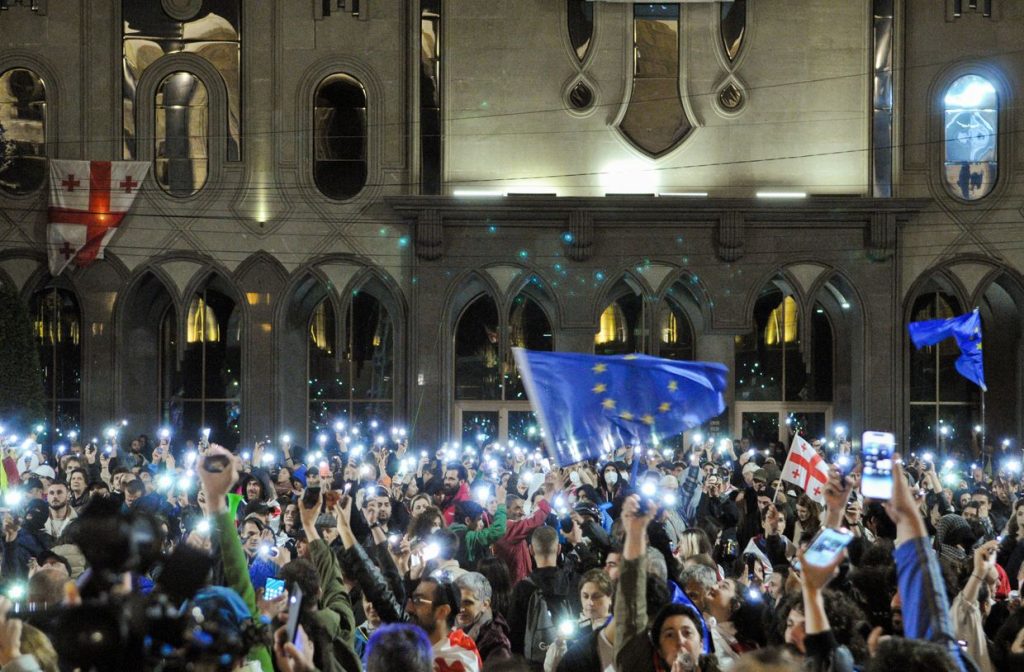The European Union has threatened to freeze Georgia’s membership bid if it enacts a controversial “foreign agents” law, similar to Russian legislation. The bill, which passed its final reading on May 14, requires organizations receiving foreign funding to be labeled as “foreign agents.” This has led to widespread protests across the country and criticism from the EU and the U.S. The U.S. has warned of reassessing its relationship with Georgia if the law is implemented, stating that it goes against democratic values and moves the country away from EU and NATO standards. The European Parliament has also condemned the law, emphasizing that EU accession negotiations should not proceed if the law is in effect.
The ongoing protests in Georgia are in opposition to the ruling Georgian Dream party’s attempt to pass the foreign agents law. Demonstrators have gathered in front of the parliament building every night, leading to accusations of a violent crackdown by the police. Reports of tear gas, water cannons, rubber bullets, and physical violence against protesters have surfaced, further inciting anger and resistance. The passing of the bill has sparked outrage among the population, with many decrying it as reminiscent of repressive practices seen in Russia. The pressure from both domestic and international sources has put the Georgian government in a difficult position, with potential implications for its relationship with the EU.
The EU’s warning to freeze Georgia’s membership bid serves as a significant deterrent for the country to reconsider implementing the controversial law. Being labeled as a “foreign agent” could have severe consequences for organizations in Georgia, potentially stifling their operations and leading to increased scrutiny from the government. The connection to Russian legislation raises further concerns about potential threats to freedom of expression and civil society in the country. The protests and backlash against the law highlight growing tensions within Georgian society and the government’s handling of democratic principles.
The White House has expressed deep concern over Georgia’s proposed foreign agents legislation, likening it to Kremlin-style practices and stating that it goes against democratic values. The U.S. has been vocal about its opposition to the law, warning of a reassessment of its relationship with Georgia if the legislation is enacted. The European Parliament has also condemned the law, emphasizing that it contradicts the values of EU and NATO membership. The mass protests and violent crackdown on demonstrators have further exacerbated the situation, with reports of police brutality fueling public outrage and resistance against the government’s actions.
The passage of the foreign agents law in Georgia has brought the country to a critical juncture, with implications for its relationship with the EU and the U.S. The threat of freezing Georgia’s membership bid underscores the severity of the situation and the potential consequences of moving forward with the controversial legislation. The ongoing protests and international condemnation signal a growing pushback against repressive measures that threaten democratic values and civil liberties. The Georgian government faces mounting pressure to reconsider its stance on the law and address the concerns raised by domestic and international stakeholders to uphold democratic principles and human rights in the country.


